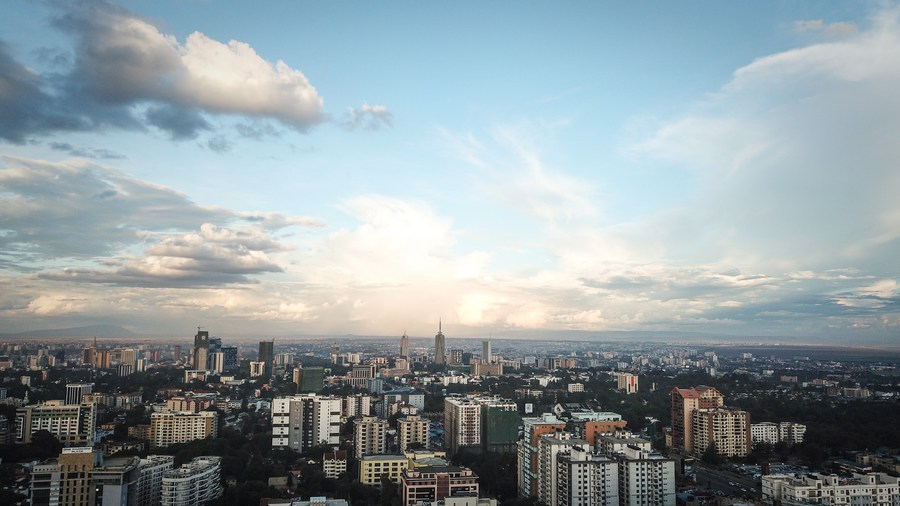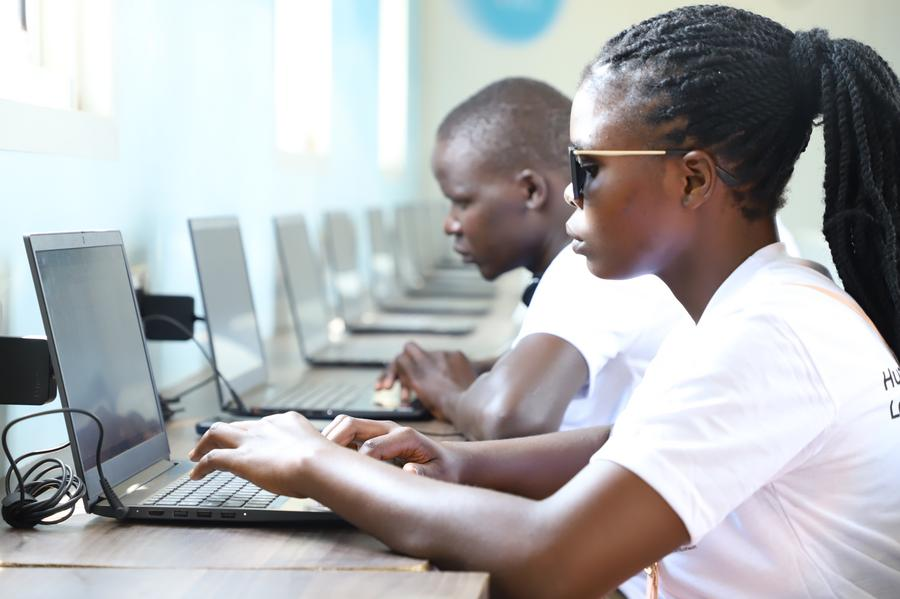
A sunset view in Nairobi, Kenya, April 3, 2024. [Photo/Xinhua]
By Azhar Azam
Held every three years alternately in China and Africa, the 2024 Summit of the Forum on China-Africa Cooperation (FOCAC), set to take place in Beijing shortly, is one of the longest existing and most sought-after global diplomatic events, as well as the most comprehensive and impactful platform that promotes collective dialogue and practical cooperation between the two historic partners.
Several African leaders are gearing up for the fete as they look to strengthen their strategic partnerships with China, upscale regional and multilateral cooperation to support global peace and security, intensify cooperation in the green and blue economies, agriculture, technology and infrastructure development, derive benefits from the summit and seek China's role in post-conflict reconstruction.
In 2021, China and Africa jointly formulated the China-Africa Cooperation Vision 2035. This Vision incorporated aspirations of the Africa Union (AU) Agenda 2063 and national development strategies of African countries such as sustainable economic and social development, job creation, ending poverty, improving education, water and power supply facilities and promoting peace, inclusive growth and industrialization, proposing green and low-carbon and digital development and renewable energy cooperation.
China's infrastructure projects – including highways, railways, ports, bridges and submarine cables – have served more than 900 million Africans through the Belt and Road Initiative (BRI). Beijing's water-saving pilot areas in Mauritania, Nigeria and Ethiopia are benefiting the local communities; the use of Juncao grass technology is creating green jobs in African countries, such as Kenya and Rwanda.
Regarding the energy crisis in Africa and its proneness to climate change, the continent's green development will be one of the key areas of focus at the FOCAC. Beijing has implemented several clean energy projects in Africa such as the Garissa Solar Power Station in Kenya and Kaleta Hydropower Station in Guinea, alleviating African countries' energy shortages; its emphasis on green development will accelerate Africa's clean transition and fortify its efforts to cope with the climate challenges.
China is helping African countries modernize their digital landscape by investing in the continent's internet infrastructure and connectivity through the BRI. Such investments are advancing Africa's aim of bolstering its telecommunications and data infrastructure as Chinese companies like Huawei and ZTE have helped expand mobile and internet access across Africa in addition to facilitating economic activities and furthering social development and digital inclusion.
The China-Africa internet development and digital cooperation forums are ascertaining the expansion of collaboration to artificial intelligence, which is estimated to increase Africa's GDP by $2.9 trillion through 2030, and the sharing of expertise in digital development and information and communication technology that will drive the continent's digitalization, and poverty alleviation efforts to build digital capacity.

Young people attend a digital training program provided by Huawei DigiTruck in the Katakwi District of eastern Uganda, January 30, 2024. [Photo/Xinhua]
Conversely, the U.S. is attempting to make Africa a theater of its strategic competition with China. As Kenya's President William Ruto arrived on a state visit to Washington this May, senior Biden administration's officials acknowledged countering China's influence was the shaping factor behind scheduling this trip.
The U.S. President Joe Biden's own commitment to Africa is vague. Hosting the U.S.-Africa Leaders' Summit in 2022, he vowed to visit Sub-Saharan Africa in 2023 but he broke his pledge. Resultantly, Ruto's visit to Washington was seen by observers as a "fig leaf" that was meant to compensate for the failure to keep his promise.
In comparison, Chinese President Xi Jinping last year visited South Africa for the 15th BRICS Summit and met several African leaders, receiving applause for China's contributions. In Kenya particularly, Beijing has undertaken vital projects such as the Mombasa-Nairobi Standard Gauge Railway and Nairobi Expressway, which have directly benefited people and boosted the Kenyan economy by significantly slashing logistics and transport costs, and underscore its goals of extending fiscal support to Nairobi.
China is criticized by Western analysts for a trade imbalance with Africa. Yet the criticism lacks substance given inexpensive Chinese goods have eased the pressure of regional countries' forex reserves and the scale of China-Africa trade has increased from less than 100 billion Chinese yuan (about $14 billion) in 2000 to 1.98 trillion yuan in 2023.
U.S. attempts to make the continent an arena for its geopolitical rivalry with China could instead complicate Africa's goals, posing a far bigger threat to Africa's peace and prosperity than that of China's.
China's relationship with Africa has been built on a common vision of mutual respect and shared peace and development. After getting rejected even from many of its own allies for its framing of a "great power competition" and hearing a "resounding no" from the Global South in 2023 for U.S. hegemony, America's new cold war psyche faces a strong rebuke from Africa.
As the U.S. continues to release mere statements of solidarity while trying to undermine Africa's unity in a bid to counter China in the continent, Beijing is making efforts to create conditions to help Africa pursue economic growth, focus on people's well-being and protect stability. China's booming approval by African people underscores that its approach toward the region is consistent with Africa's own vision and provides a solution to the pressing continental challenges.
Azhar Azam, a special commentator on current affairs for CGTN, works in a private organization as a market and business analyst and writes about geopolitical issues and regional conflicts.

 中文
中文



